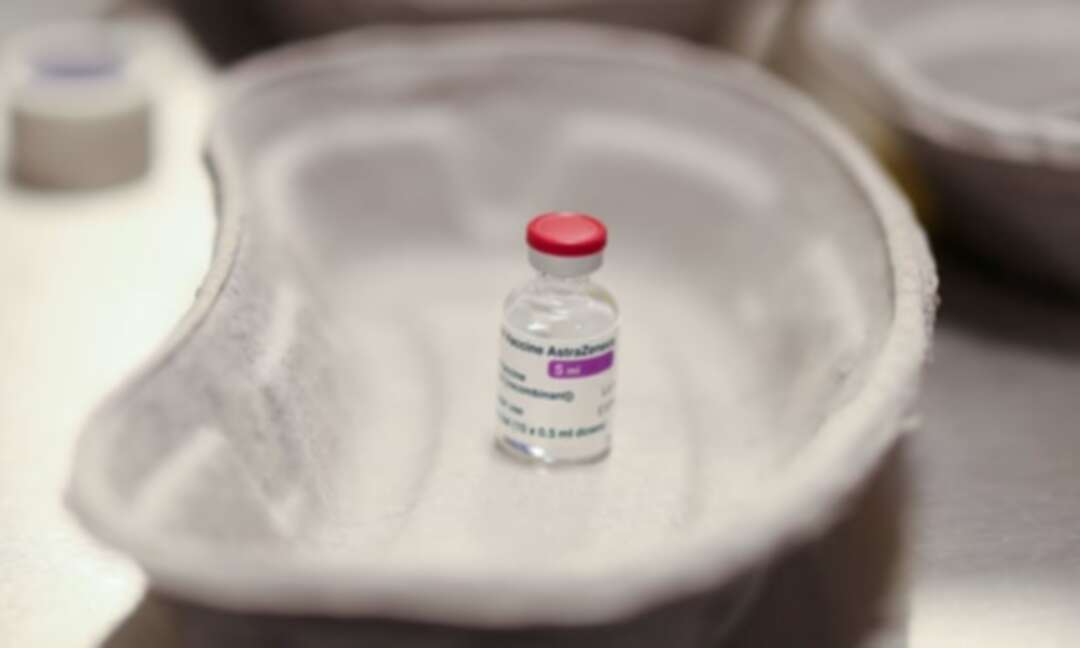-
GP surgeries in England begin offering Oxford coronavirus vaccine

Deployment comes amid claims family doctors have been told to ‘stand down’ routine care
GP surgeries in England are to begin administering the Oxford/AstraZeneca coronavirus vaccine amid claims family doctors have been instructed to “stand down” routine care to prioritise inoculation.
The deployment from Thursday comes after the UK daily reported death toll topped 1,000 and London’s hospitals were said to be on the brink of being overwhelmed.
It is hoped more than 700 sites in England will be delivering vaccines by the end of the week in a mass vaccination drive the prime minister has said is now a race.
A further 1,041 people were reported on Wednesday to have died within 28 days of testing positive for the virus – the highest UK daily total since 21 April. Record numbers are also in hospital with Covid-19, with a further 3,500 admitted in England on Monday.GPs have been given instructions to “stand down non-essential work” in order to focus on the delivery of the jabs, the Daily Telegraph reported. Lucy Watson, the chair of the Patients Association, told the newspaper: “For patients to be confident that the NHS remains open for business it would be helpful for there to be clear messages from NHS England about which healthcare activities are being stopped in primary care and which healthcare activities are being continued.”
Boris Johnson received the overwhelming backing of MPs for the latest lockdown as the House of Commons was recalled from its Christmas break on Wednesday, with a 508-majority of MPs voting for the measures whichthat could be in place until 31 March 31.
He told the Commons: “After the marathon of last year we are indeed now in a sprint, a race to vaccinate the vulnerable faster than the virus can reach them. “Every needle in the arm makes a difference.”
The Oxford/AstraZeneca vaccine – with the second jab taking place 12 weeks after the first – is easier to administer as it can be stored at normal fridge temperatures, unlike the Pfizer/BioNTech jab that requires long-term storage at -70C.
Seven mass vaccination centres will open next week in London, Newcastle, Manchester, Birmingham, Bristol, Surrey and Stevenage.
There were claims GPs have delayed vaccination clinics repeatedly because the delivery of supplies has been inconsistent. Richard Vautrey, who chairs the British Medical Association’s GP committee, told the Times it was “crucial that practices are given greater certainty over delivery date, which then do not change, and as much notice as possible of any potential delays so they can effectively mitigate the impact of rescheduling patients last minute”.
One Bristol medical centre reportedly had its first batch, due on 22 December, cancelled at the last minute. A vaccination site in Rochdale, told to expect more than 1,000 doses this weekend, was then told they would not arrive, the Times reported.
The home secretary, Priti Patel, said “localised issues” may have prevented the vaccine from reaching some GPs.
She told Sky News: “The NHS has a clear plan for delivering the vaccine and that plan has been working, it is going out to GPs. There might be some localised issues in getting vaccine to a particular GP surgery.”
She added: “This is the biggest rollout programme of vaccination in the history of the NHS so there are clearly some issues right now but the fact of the matter is we are absolutely getting this vaccine rolled out.”
The vaccine minister, Nadhim Zahawi, admitted the target of vaccinating about 14 million people in the highest priority groups by 15 February was “stretching”. Approximately 1.3 million people have already received either the Pfizer/BioNTech or Oxford/AstraZeneca jab.
According to a report in the Daily Mail, the effort to increase the speed of inoculations will result in the approval period needed for Covid vaccine batches being slashed from 20 days to four. The Medicines and Healthcare products Regulatory Agency (MHRA), the body responsible for the checks, will also increase staffing in an attempt to accelerate the programme, the paper reported.
source: Caroline Davies
Levant
You May Also Like
Popular Posts
Caricature
BENEFIT Sponsors BuildHer...
- April 23, 2025
BENEFIT, the Kingdom’s innovator and leading company in Fintech and electronic financial transactions service, has sponsored the BuildHer CityHack 2025 Hackathon, a two-day event spearheaded by the College of Engineering and Technology at the Royal University for Women (RUW).
Aimed at secondary school students, the event brought together a distinguished group of academic professionals and technology experts to mentor and inspire young participants.
More than 100 high school students from across the Kingdom of Bahrain took part in the hackathon, which featured an intensive programme of training workshops and hands-on sessions. These activities were tailored to enhance participants’ critical thinking, collaborative problem-solving, and team-building capabilities, while also encouraging the development of practical and sustainable solutions to contemporary challenges using modern technological tools.
BENEFIT’s Chief Executive Mr. Abdulwahed AlJanahi, commented: “Our support for this educational hackathon reflects our long-term strategic vision to nurture the talents of emerging national youth and empower the next generation of accomplished female leaders in technology. By fostering creativity and innovation, we aim to contribute meaningfully to Bahrain’s comprehensive development goals and align with the aspirations outlined in the Kingdom’s Vision 2030—an ambition in which BENEFIT plays a central role.”
Professor Riyadh Yousif Hamzah, President of the Royal University for Women, commented: “This initiative reflects our commitment to advancing women in STEM fields. We're cultivating a generation of creative, solution-driven female leaders who will drive national development. Our partnership with BENEFIT exemplifies the powerful synergy between academia and private sector in supporting educational innovation.”
Hanan Abdulla Hasan, Senior Manager, PR & Communication at BENEFIT, said: “We are honoured to collaborate with RUW in supporting this remarkable technology-focused event. It highlights our commitment to social responsibility, and our ongoing efforts to enhance the digital and innovation capabilities of young Bahraini women and foster their ability to harness technological tools in the service of a smarter, more sustainable future.”
For his part, Dr. Humam ElAgha, Acting Dean of the College of Engineering and Technology at the University, said: “BuildHer CityHack 2025 embodies our hands-on approach to education. By tackling real-world problems through creative thinking and sustainable solutions, we're preparing women to thrive in the knowledge economy – a cornerstone of the University's vision.”
opinion
Report
ads
Newsletter
Subscribe to our mailing list to get the new updates!






















